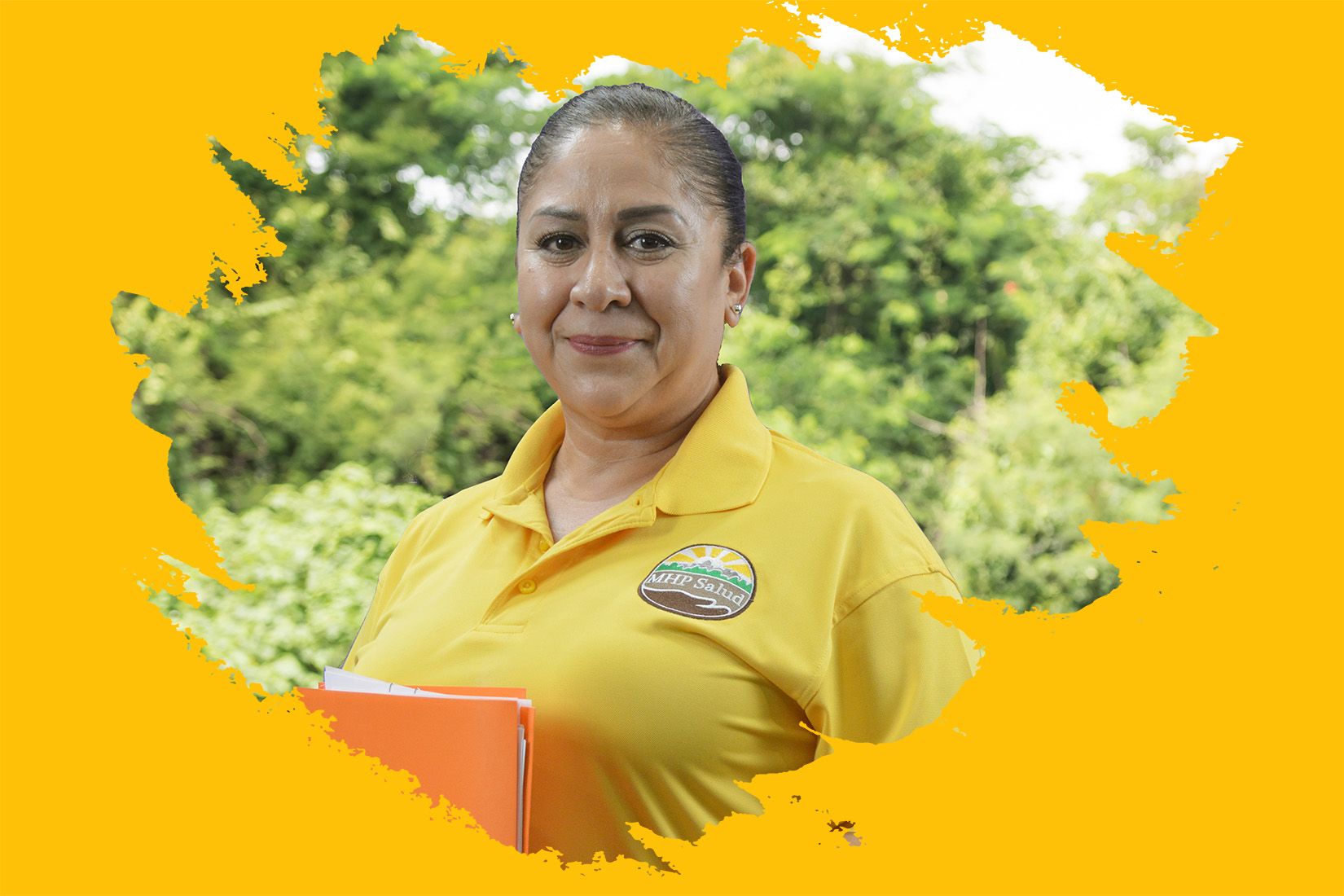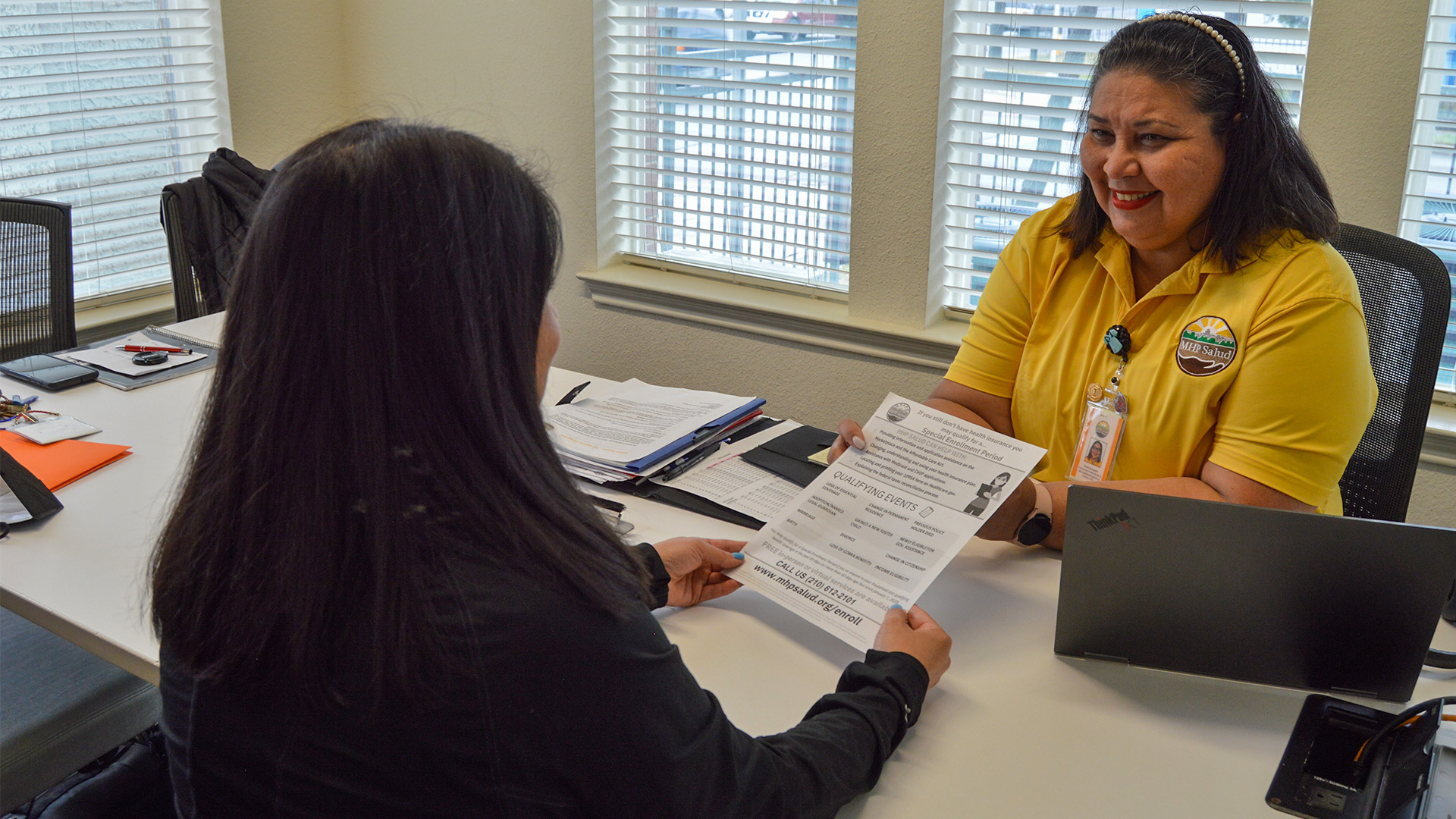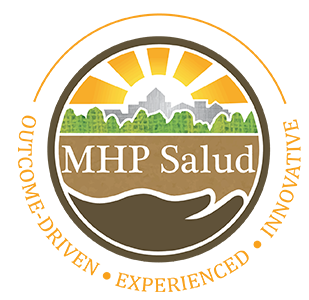La Esperanza Winter 2022 Edition
La Esperanza (Hope) is a bilingual newsletter dedicated to the work of Community Health Workers across the country. MHP Salud, collaborators and CHWs themselves write articles specifically for and about their work
The Impacts of a Changing Climate on Agricultural Workers
Migrant and Seasonal Agricultural Workers, or MSAWs, are defined as individuals whose principal employment is in agriculture and have been employed within the last 24 months and have established temporary housing. Seasonal agricultural workers are those whose employment in agriculture is seasonal and do not meet the definition of a migratory agricultural worker. The MSAW umbrella also defines individuals or family members who are no longer employed in migratory or seasonal agricultural work due to age or disability1. Agriculture refers to all its branches, such as the crop production sector, animal production, support activities for crop production, and support activities for animal production.2 Agricultural workers are especially at risk of the negative health effects of a changing climate.
Due to the nature of agricultural work, there is growing concern about the health and safety of this population due to rising temperatures.
Exposure to extreme sun and heat can cause heat-related illnesses, like heat stroke, and can be deadly if not attended. MSAWs are most affected by extreme changes in climate as they work outdoors and often under poor working conditions.3 Heat stroke is caused by the body temperature rising rapidly to 106 degrees Fahrenheit or higher within a short time span of 10 to 15 minutes. Symptoms can include confusion, loss of consciousness, dryness of skin, and a very high body temperature that can lead to seizures or be fatal if not treated on time.4
Agricultural workers also commonly experience poor working conditions including limited access to water, shade, and resting periods. Many agricultural workers wear long-sleeved clothing to protect themselves from sun exposure; however, that often adds to the raising of the body temperature. Strenuous work in direct sunlight with no access to shade puts these workers at risk for heat stroke and dehydration.5
Limited access to information about climate-related health issues is a problem for MSAWs. Many agricultural workers have difficulties accessing health care, which can be due to working long hours without sufficient time off to seek services. MSAWs may also not be aware of the hours of operation of a clinic or are only available for evening and Sunday clinic visits. The following factors also create barriers to care for MSAWs:6
- Program ineligibility based on immigration status
- Fear of accessing healthcare because of their immigration status and/or a mistrust in the healthcare system
- Lack of information on health programs available for MSAWs
- Transportation barriers
- Language barriers
- Low health literacy
- Confusion with navigating the complex United States healthcare system
Many MSAWs lack an understanding of the services and resources available to them and are more likely not to seek preventative care and only attain emergency care at the last moment.
CHW Role in Addressing Climate
A Community Health Worker (CHW) is a trusted member of the community who empowers their peers through education and connections to health and social resources. CHWs are of the community and can create a trusting relationship with MSAWs through community outreach efforts and gaining an understanding of their unique needs.7 By understanding the barriers and limitations that MSAWs face, CHWs can provide them culturally appropriate information and be the bridge to much needed resources that promote health and well-being. The CHW model is deemed appropriate as they understand the local culture, language, and their local resources, which allows positive change and strengthens communities.
CHWs often have various roles when serving MSAWs. These can include work as a case manager, direct social worker, eligibility specialist, advocate, and health educator among others. CHWs can address the various barriers that MSAW communities face. CHWs can assist MSAWs with navigation of the U.S. health care system. They can help inform this population of the health programs available and identify the criteria needed to be eligible and apply. Many CHWs are also health educators and provide informational sessions to the MSAW communities regarding health disparities, preventative care, strategies, and tools to help mitigate the effects of climate in the agricultural workforce. In addition to providing culturally sensitive and occupationally relevant health education, CHWs can assist MSAWs in making healthcare and social services appointments, obtaining transportation, and improving health literacy through education and providing interpretation services. CHW interventions are critical for agricultural workers as they provide not only essential direct services to individuals but serve as a link between MSAWs and health and social resources that seem to be inaccessible.8

CHW Support Group (En Espanol)
Join our virtual support group calls related to COVID-19 for CHWs who work in health centers and who speak or provide services in Spanish. The next call takes place April 21, 2023, 1:00 PM to 2:00 PM (Central Time).
Support for Hispanic Older Adults Caregivers
Join our virtual technical assistance calls to help strengthen aging services for Hispanic older adults. Calls take place on the 3rd Wednesday of the month from 2:00 PM to 3:00 PM (Eastern Time).
CHW Association Technical Assistance Calls
These calls focus on encouraging peer networking and troubleshooting, based on topics from the CHWA training needs assessment and polls conducted during TA calls. Our next call is November 17, 2022, 3:00 PM EST.
Self-Care for Farmworkers
This resource for CHWs shares tips from a CHW on how to help improve the self-care of farmworkers.
Migrant Family Emergency Checklist
The Migrant Family Emergency Checklist contains important questions for all migrant families in emergency preparedness. Emergency situations can be hard to predict, but there are easy steps families can take to be prepared.
-
- https://bphc.hrsa.gov/compliance/compliance-manual/glossary
- http://www.ncfh.org/uploads/3/8/6/8/38685499/naics_accepted_by_hrsa_for_farmworker_eligibility_%5B09012016%5D.pdf
- https://www.ncbi.nlm.nih.gov/pmc/articles/PMC8861180/
- https://www.cdc.gov/niosh/topics/heatstress/heatrelillness.html
- https://nfwm.org/farm-workers/farm-worker-issues/farm-workers-the-environment/#heat
- https://nfwm.org/farm-workers/farm-worker-issues/health-safety/#healthcare

CHW Testimonials
“As a CHW, I have been able to put on different hats to help my community. I have helped in application assistance, navigation of the health care system, advocating, and educating. But most of all, I enjoy being a resource and helping those in need.”
Ana Lilia Guereca
Dinamica: Ice Breaker Activity
A dinámica is an activity or game with a specific purpose, such as to get to know one another, learn new information, review what was learned, brainstorm new ideas, or just get a group moving. Dinámicas can be done in a virtual setting as well to motivate and energize the group.
3-Step Mindfulness
This worksheet outlines the 3-Step Mindfulness Exercise, a useful activity when formal mindfulness practice might not be practical. It is designed to be versatile, so you can practice these three steps throughout the day to bring your awareness to the present moment.
Resources
Call for Health
Call for Health by the National Center for Farmworker Health (NCFH) is a nation-wide, toll-free, bilingual, health information and referral service program for farmworkers and their families. Contact Call for Health Monday through Friday 9:00 AM to 5:00 PM (Central Time):
Phone: 1.800.377.9968
WhatsApp: 1.737.414.5121
Facebook: https://www.facebook.com/UnaVozParalaSalud
Instagram: https://www.instagram.com/unavozparalasalud
Heat-Related Illness and Farmworkers
Migrant Clinicians Network (MCN) in collaboration with Farmworkers Justice (FJ) have developed a curriculum and resources on the topics of heat-related illnesses and heat stress associated with agricultural work. The resources focus on the causes of heat illness and prevention. To access this resource, click here.
Farmworker Health and Hygiene Basic Rules Video
Penn State Extension shares a video explaining why proper health and hygiene is important, the sources of human contamination, basic rules to prevent contamination, and components of worker training. To view the video, click here.
Save the Dates
Western Forum for Migrant and Community Health
The 2023 Western Forum for Migrant and Community Health will be hosted in Long Beach, California on February 14-16, 2022. The forum provides education and training, information and resources sharing, coalition building, and program and policy development for community-centered health professionals and their partners. For more information on the West Coast Migrant Stream Forum, visit the Northwest Regional Primary Care Association web page located here.
Midwest Stream Forum for Agricultural Worker Health
The 31st Annual Midwest Stream Forum for Agricultural Worker Health, produced by the National Center for Farmworker Health, Inc., is an annual conference that provides quality, agricultural worker-specific, professional development experiences for individuals in all disciplines within agricultural worker health. The Forum offers a diverse program featuring sessions on clinical topics, lay health outreach, research, social determinants of health, and leadership development. Participants also can obtain continuing education credits. National Center for Farmworker Health, Inc. will be hosting the Midwest Stream Forum for Agricultural Worker Health on April 24-26, 2022, in Austin, Texas. For more information on the Midwest Stream Forum, click here.
Is your organization interested in starting or strengthening a CHW program? Click here to see how we can help you.
HRSA Disclaimer
This publication is supported by the Health Resources and Services Administration (HRSA) of the U.S. Department of Health and Human Services (HHS) as part of an award totaling $678,959.00 with 0 percentage financed with nongovernmental sources. The contents are those of the author(s) and do not necessarily represent the official views of, nor an endorsement, by HRSA, HHS or the U.S. Government. For more information, please visit www.HRSA.gov.
MHP Salud Disclaimer
All content found in MHP Salud materials, including websites, printed materials, photos, graphics or electronic content, unless otherwise cited, credited or referenced, were created by MHP Salud and are the organization’s intellectual property. As such, they are not to be used without the permission of MHP Salud and, if permission is granted, is to be cited appropriately with name and/or logo as designated by the permission granted by MHP Salud in addition to any other condition listed in permission.



